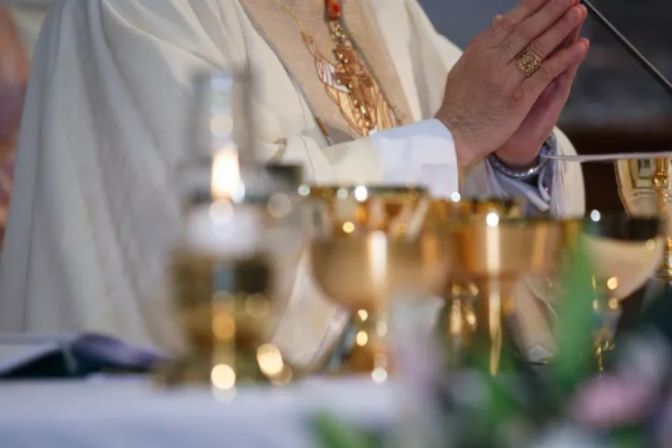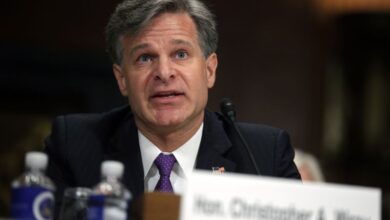Argentine bishops speak out about interrupting Mass with political chants

 null / Credit: Shutterstock
null / Credit: Shutterstock ACI Prensa Staff, Jun 19, 2024 / 16:30 pm (CNA).
In two separate recent incidents, participants at Mass in Argentina started chanting the political slogan “the country is not for sale,” an expression of opposition to the policies of President Javier Milei. Videos showing the chanting have circulated on social media, leading several bishops to speak out about the situation.
One of the Masses was celebrated by the auxiliary bishop of Buenos Aires, Gustavo Carrara, who later issued a statement “humbly apologizing” to those who might have felt offended. Although he did not participate in the chanting, as the celebrant he took responsibility for what had happened.
The archbishop of Buenos Aires, Jorge García Cuerva, also spoke out about the incidents during a June 15 Mass at St. Ildephonsus Parish, making it clear that “the Mass is something sacred.”
“Here we come to be nourished by unity, brotherhood, peace. That’s why it’s not good to use the Mass to divide, to fragment, to be partisan,” he added.
Two more bishops have now commented on the matter.
In an interview with Radio 10, the bishop of San Justo, Eduardo García, when asked about the “political tone” that has been attributed to the actions of the Church lately said it “would seem that since there is no opposition, we [the Church] are the opposition.”
“We are doing what we have to do, what we always do, and perhaps it becomes more visible and stronger because the reality is more painful,” he said in defense of the Catholic Church and its solidarity work in the face of the crisis besetting Argentina.
“Reality kills the story,” García added. “You have to get down to reality, look at the people, ask questions, see what is happening to them.”
Regarding the videos going viral of people chanting political slogans at Mass, García said: “We are in a critical moment, what is critical is accentuated, perhaps, by the issue of communications, social media, that anyone can say anything and it’s taken as truth, then that creates even more confusion.”
“I believe that social media used well, coming from the truth, ethically, with common sense and with sensitivity can do a lot of good; when used coming from another place they are very harmful,” he concluded.
In a June 15 post on Facebook, the bishop of San Francisco in Argentina, Sergio Osvaldo Buenanueva, also referred to what happened, expressing his appreciation for Carrara’s gesture of apologizing for the incident.
“In a polarized country like ours, the power of social media quickly makes incomplete information go viral. Thus people rush to take positions and make judgments, largely unappealable. And social harmony is greatly diminished,” the prelate noted.
“This polarization also hurts our Christian communities,” lamented Buenanueva, who, referring to Carrara, said that “the words and the gesture of the bishop are sincere and ameliorating, and so they are appreciated.”
“The Mass cannot be used to promote political causes,” he pointed out, “not because politics is bad, but because that’s not the purpose of the Mass, which is to glorify God and sanctify the baptized, strengthen the unity of the Church and promote its mission in the world, also encouraging ‘better politics’ as Pope Francis says and Bishop Carrara has aptly noted.”
“This video, like another one that circulated before, causes estrangement, discouragement, and annoyance in many good Catholics, both pastors and especially laypeople,” he acknowledged.
“The vast majority of our Christian communities, when they celebrate the Eucharist, do so with deep faith and respect for the sacred mystery,” Buenanueva noted, pointing out that “some minority positions and — in my opinion — also anachronistic positions, cannot make us lose sight of the rich life of faith, mission, and commitment of our communities throughout the country.”
“I say it again that I value the gesture of Bishop Gustavo Carrara because it expresses the will to work for the harmony that animates all bishops. It is the power of the charity of Christ to which we must always return so that he may transform us into artisans of peace,” he concluded.
This story was first published by ACI Prensa, CNA’s Spanish-language news partner. It has been translated and adapted by CNA.





